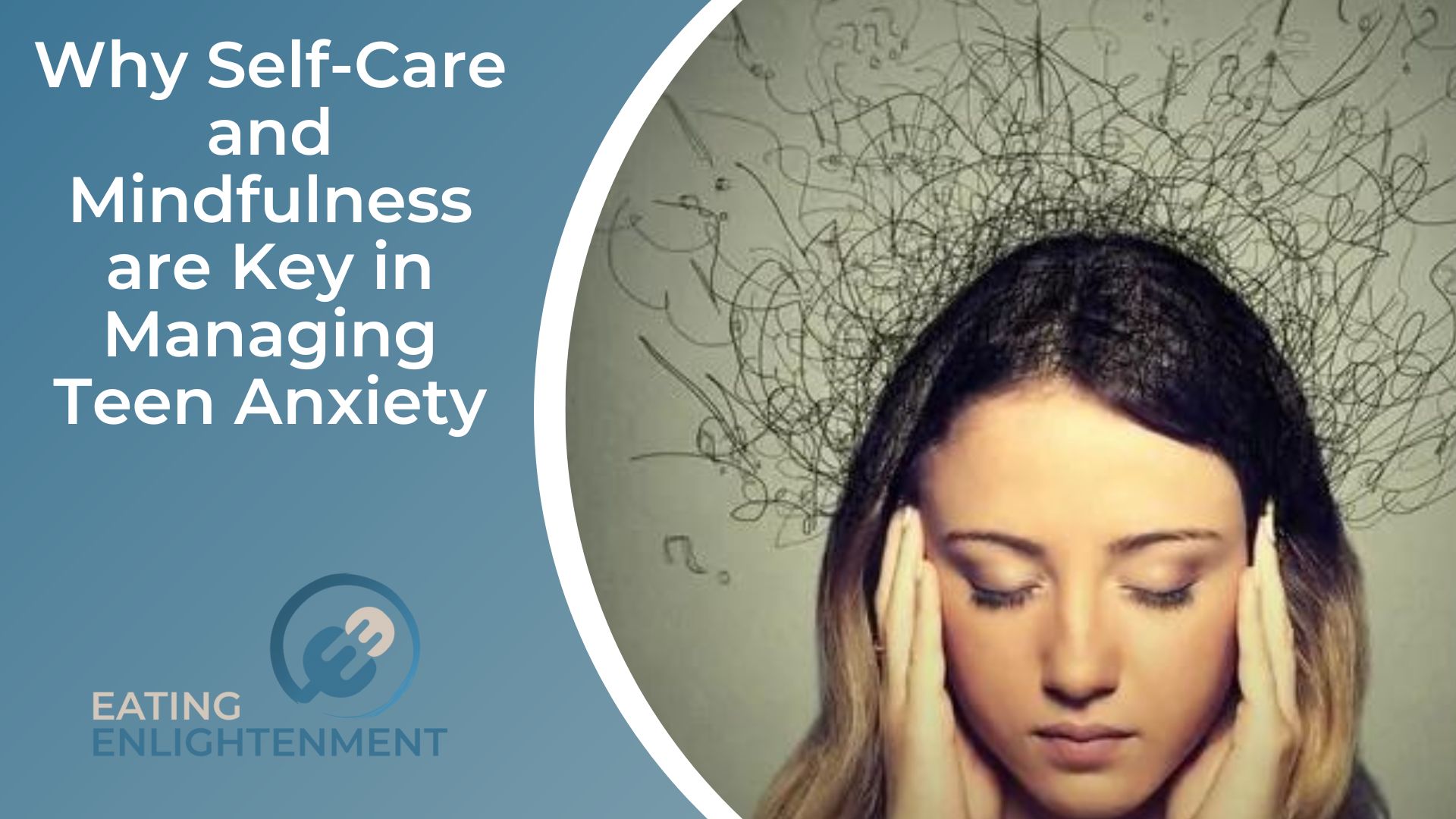Adolescence, a tumultuous period of growth and self-discovery, often brings with it the burden of anxiety.
In today’s fast-paced and hyper-connected world, teens find themselves navigating an array of challenges that can trigger overwhelming feelings of stress and apprehension. This is where the transformative practices of self-care and mindfulness step in, offering a lifeline to alleviate the strain and empower young minds.
By consciously tending to their mental and emotional well-being, teenagers can cultivate a sense of balance, resilience, and inner peace. In this blog post, we delve into the vital role self-care and mindfulness play in managing teen anxiety. Without further ado, let’s get started.
Promotes Emotional Well-being
Adolescence can be a challenging time, as teenagers navigate through various emotional and social changes. For teenagers struggling with anxiety, prioritizing self-care becomes crucial in promoting emotional well-being. Self-care practices, such as engaging in activities that bring joy and relaxation, can provide much-needed respite from the pressures and demands of daily life.
Whether it’s spending time in nature, pursuing creative hobbies, or practicing mindfulness and meditation, these activities help teenagers cultivate a sense of calm and inner balance. However, it is important to find out the anxiety causes so as to come up with proper measures on promoting well-being.
By investing time and effort into self-care, teenagers with anxiety can nurture their emotional well-being, build a stronger resilience, and develop healthier coping mechanisms to manage their anxiety effectively.
Builds Resilience
Resilience is a vital quality for teenagers facing anxiety, as it equips them with the ability to bounce back from setbacks and navigate challenges with greater ease. Mindfulness techniques play a significant role in building resilience among teens dealing with anxiety. By practicing mindfulness, teenagers learn to observe their thoughts and emotions without judgment, allowing them to develop a greater awareness of their internal experiences. This awareness enables them to identify and challenge negative thought patterns, reducing the impact of anxiety on their overall well-being.
Additionally, mindfulness fosters a sense of self-compassion, teaching teenagers to be kinder and more understanding towards themselves. Through regular mindfulness practice, teens can cultivate resilience, developing the necessary skills to cope with anxiety and adapt to the ups and downs of life.
Reduces Stress and Overwhelm
Teenagers often face a myriad of stressors, from academic pressures to social expectations, which can lead to feelings of overwhelm. Implementing self-care routines becomes paramount in reducing stress and alleviating these overwhelming emotions. Engaging in activities that promote relaxation, such as taking regular breaks, practicing deep breathing exercises, or engaging in physical activities, can help teens unwind and release tension. Self-care routines provide an opportunity for teenagers to recharge their mental and emotional batteries, fostering a sense of calm and balance.
By prioritizing self-care, teens can effectively manage stress, preventing it from escalating into chronic anxiety. Moreover, self-care routines serve as valuable tools for teaching teenagers the importance of self-preservation and setting healthy boundaries in their lives, empowering them to prioritize their well-being and navigate stressors more effectively.
Enhancing Self-Awareness
Self-awareness plays a critical role in managing anxiety among teenagers. Mindfulness practices offer valuable tools to enhance self-awareness and support teens in navigating their anxiety effectively. By engaging in mindfulness exercises, such as body scans or mindful breathing, teens learn to tune into their thoughts, emotions, and bodily sensations in the present moment. This heightened self-awareness enables them to recognize the triggers and patterns of their anxiety, gaining insight into the underlying causes.
With this understanding, teens can develop proactive strategies to manage their anxiety, such as practicing self-soothing techniques or seeking support when needed. Cultivating self-awareness through mindfulness empowers teenagers to take charge of their mental well-being, fostering a greater sense of control and reducing the impact of anxiety on their lives.
Nurtures Healthy Relationships
Healthy relationships are instrumental in supporting teenagers with anxiety. Self-care practices and mindfulness serve as essential tools for nurturing these relationships and providing anxiety relief. Engaging in self-care routines helps teenagers cultivate a positive sense of self, boosting their self-esteem and confidence in social interactions. By prioritizing their well-being, teens can establish boundaries, communicate their needs effectively, and make healthier relationship choices. Mindfulness practices further enhance relationship dynamics by fostering active listening, empathy, and emotional regulation.
By being fully present in interactions, teens can strengthen their connections, reduce interpersonal conflicts, and receive the support they need during anxious moments. Self-care and mindfulness empower teenagers to cultivate nurturing and meaningful relationships, creating a strong support system to navigate the challenges of anxiety.
Increases Happiness
Self-care and mindfulness practices have a direct impact on the happiness levels of teenagers struggling with anxiety. When teens prioritize self-care, engage in activities they enjoy, and take time for themselves, they experience an increase in overall happiness and well-being. Self-care provides an opportunity for relaxation, rejuvenation, and indulging in activities that bring joy and fulfillment.
Similarly, mindfulness practices cultivate a sense of gratitude, acceptance, and present-moment awareness, allowing teenagers to find happiness in the simple joys of life. By incorporating self-care and mindfulness into their routine, teens can effectively manage their anxiety, reduce negative emotions, and experience greater happiness and contentment in their day-to-day lives.
Self-care and mindfulness are invaluable tools for managing teen anxiety. They promote emotional well-being, build resilience, reduce stress and overwhelm, enhance self-awareness, nurture healthy relationships, and increase happiness.
By incorporating self-care practices and mindfulness techniques into their lives, teenagers can develop effective coping strategies, cultivate a positive mindset, and improve their overall quality of life. Encouraging teens to prioritize self-care and mindfulness empowers them to navigate the challenges of anxiety with greater ease, fostering a foundation of mental and emotional well-being.



